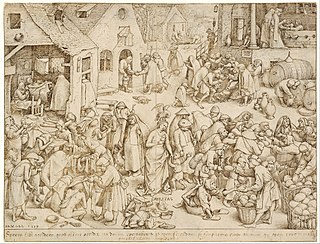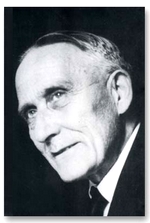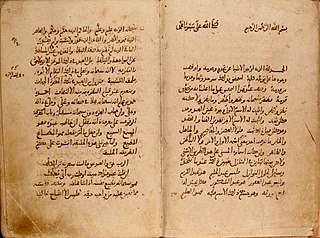
Sufism, also known as Tasawwuf, is a mystic body of religious practice, found mainly within Sunni Islam but also within Shia Islam, which is characterized by a focus on Islamic spirituality, ritualism, asceticism and esotericism. It has been variously defined as "Islamic mysticism", "the mystical expression of Islamic faith", "the inward dimension of Islam", "the phenomenon of mysticism within Islam", the "main manifestation and the most important and central crystallization" of mystical practice in Islam, and "the interiorization and intensification of Islamic faith and practice".
Spiritual ecology is an emerging field in religion, conservation, and academia recognizing that there is a spiritual facet to all issues related to conservation, environmentalism, and earth stewardship. Proponents of Spiritual Ecology assert a need for contemporary conservation work to include spiritual elements and for contemporary religion and spirituality to include awareness of and engagement in ecological issues.
Catholic social teaching, commonly abbreviated CST, is an area of Catholic doctrine concerning matters of human dignity and the common good in society. The ideas address oppression, the role of the state, subsidiarity, social organization, concern for social justice, and issues of wealth distribution. Its foundations are widely considered to have been laid by Pope Leo XIII's 1891 encyclical letter Rerum novarum, which advocated economic distributism. Its roots can be traced to the writings of Catholic theologians such as St. Thomas Aquinas and St. Augustine of Hippo. It is also derived from concepts present in the Bible and cultures of the ancient Near East.

The Canticle of the Sun, also known as Laudes Creaturarum and Canticle of the Creatures, is a religious song composed by Saint Francis of Assisi. It was written in an Umbrian dialect of Italian but has since been translated into many languages. It is believed to be among the first works of literature, if not the first, written in the Italian language.

Works of mercy are practices considered meritorious in Christian ethics.

Louis Massignon was a Catholic scholar of Islam and a pioneer of Catholic-Muslim mutual understanding. He was an influential figure in the twentieth century with regard to the Catholic church's relationship with Islam. He focused increasingly on the work of Mahatma Gandhi, whom he considered a saint. He also played a role in Islam being accepted as an Abrahamic Faith among Catholics. Some scholars maintain that his research, esteem for Islam and Muslims, and cultivation of key students in Islamic studies largely prepared the way for the positive vision of Islam articulated in the Lumen gentium and the Nostra aetate at the Second Vatican Council. Although a Catholic himself, he tried to understand Islam from within and thus had a great influence on the way Islam was seen in the West; among other things, he paved the way for a greater openness inside the Catholic Church towards Islam as it was documented in the pastoral Vatican II declaration Nostra aetate.
Religion and environmentalism is an emerging interdisciplinary subfield in the academic disciplines of religious studies, religious ethics, the sociology of religion, and theology amongst others, with environmentalism and ecological principles as a primary focus.

Fażlu l-Lāh Astar-Ābādī, also known as Fażlullāh Tabrīzī Astarābādī by a pseudonym al-Ḥurūfī and a pen name Nāimī, was an Iranian mystic who founded the Ḥurūfī movement. The basic belief of the Ḥurūfiyyah was that the God was incarnated in the body of Fażlullāh and that he would appear as Mahdī when the Last Day was near in order to save Muslims, Christians and Jews. His followers first came from the village of Toqchi near Isfahan and from there, the fame of his small community spread throughout Khorasan, Iraq, Azerbaijan and Shirvan. The center of Fażlullāh Nāimī's influence was Baku and most of his followers came from Shirvan. Among his followers was the famous Ḥurūfī poet Seyyed Imadaddin Nasimi, one of the greatest Turkic mystical poets of the late 14th and early 15th centuries.

Kashf "unveiling" is a Sufi concept dealing with knowledge of the heart rather than of the intellect. Kashf describes the state of experiencing a personal divine revelation after ascending through spiritual struggles, and uncovering the heart in order to allow divine truths to pour into it. Kashf is etymologically related to mukashafa “disclosure”/ “divine irradiation of the essence”, which connotes "gain[ing] familiarity with things unseen behind the veils". For those who have purified their hearts, and who come to know the Divine Names and Attributes to the fullest of their individual capacities, the veils in front of the purely spiritual realms are opened slightly, and they begin to gain familiarity with the unseen. In Sufism, an even further revelatory capacity exists by which the Divine mysteries become readily apparent to the seeker through the light of knowledge of God. This is called tajalli "manifestation".
Evangelii gaudium is a 2013 apostolic exhortation by Pope Francis "On the proclamation of the Gospel in today's world". In its opening paragraph, Pope Francis urged the entire Church "to embark on a new chapter of evangelism". According to the exhortation, the Church must understand itself as a community of missionary disciples, who are "permanently in a state of mission".
Laudato si' is the second encyclical of Pope Francis. The encyclical has the subtitle "on care for our common home". In it, the pope critiques consumerism and irresponsible development, laments environmental degradation and global warming, and calls all people of the world to take "swift and unified global action."

Stefan Heße is a German prelate of the Roman Catholic Church. He has been Archbishop of the Archdiocese of Hamburg since 26 January 2015. The youngest diocesan bishop in Germany, he has often been outspoken on social and religious topics.

Laudato si' is an oratorio composed in 2016 by Peter Reulein on a libretto by Helmut Schlegel. Subtitled Ein franziskanisches Magnificat, it includes the full Latin text of the Magnificat, expanded by writings of Clare of Assisi, Francis of Assisi and Pope Francis. The composer set it for five soloists, children's choir, Choralschola, mixed choir, symphony orchestra and organ. It was published in 2016 by the Dehm Verlag, and was premiered on 6 November 2016 at the Limburg Cathedral, conducted by the composer.
The Synod of Bishops for the Pan-Amazon region, commonly referred to as the Amazon synod, met in Rome from 6 to 27 October 2019. Pope Francis announced on 15 October 2017 that a special assembly of the Synod of Bishops would work "to identify new paths for the evangelization of God's people in that region", specifically the indigenous peoples who are "often forgotten and without the prospect of a serene future".

Eva de Vitray-Meyerovitch was a French scholar of Islam, a researcher at the Centre national de la recherche scientifique (CNRS), and a translator and writer, who published a total of forty books and numerous articles. She was a disciple of the Sufi master Hamza al Qadiri al Boutchichi.
The Document on Human Fraternity for World Peace and Living Together, also known as the Abu Dhabi declaration or Abu Dhabi agreement, is a joint statement signed by Pope Francis of the Catholic Church and Sheikh Ahmed el-Tayeb, Grand Imam of Al-Azhar, on 4 February 2019 in Abu Dhabi, United Arab Emirates. The document was born of a fraternal open discussion between Francis and Tayeb and is concerned with how different faiths can live peacefully in the same world, and it is meant to be a guide on advancing a "culture of mutual respect".

The Meccan Revelations is the major work of the philosopher and Sufi Ibn Arabi, written between 1203 and 1240.
Querida Amazonia is a 2020 post-synodal apostolic exhortation of Pope Francis, written in response to the Synod of Bishops for the Pan-Amazon region held in Rome in October 2019. Focusing on the Amazon region of South America, it is addressed "to the people of God and to all persons of good will". The document is dated 2 February 2020, the liturgical feast of Candlemas, and was released by the Holy See Press Office at a press conference on 12 February.
Fratelli tutti is the third encyclical of Pope Francis, subtitled "on fraternity and social friendship". In the document, Francis states that the way the COVID-19 pandemic was managed by world countries has shown a failure in global cooperation. The encyclical calls for more human fraternity and solidarity, and is a plea to reject wars.








